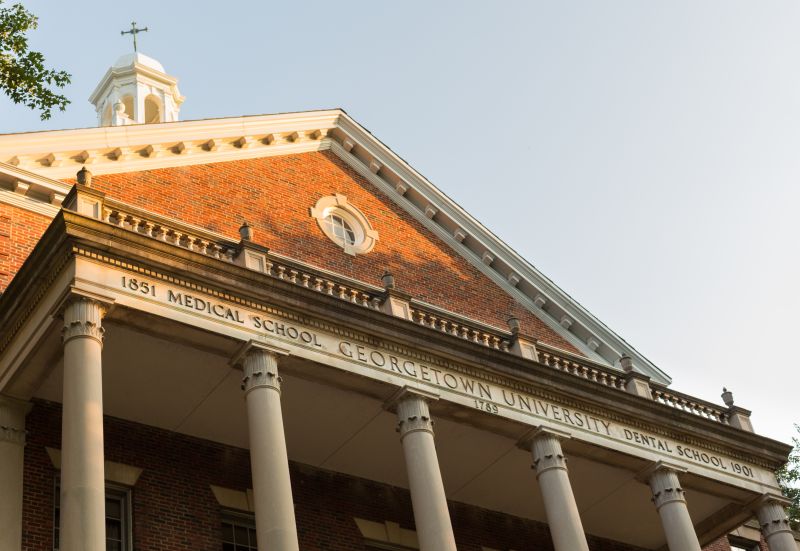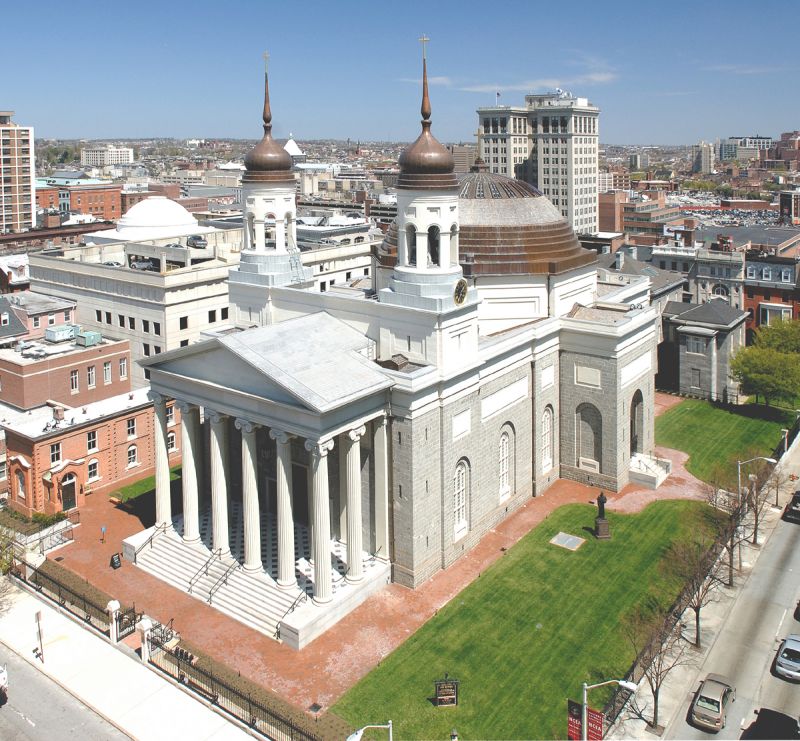 The exterior of Georgetown University’s School of Medicine in Washington, D.C. / Shutterstock
The exterior of Georgetown University’s School of Medicine in Washington, D.C. / Shutterstock
Denver, Colo., Jul 10, 2023 / 08:44 am (CNA).
The U.S. bishops have reaffirmed the importance of education access for marginalized racial groups after the U.S. Supreme Court ruled against affirmative action in higher education.
“Education is a gift, an opportunity, and an important aspect of our democracy that is not always within the reach of all, especially racial and ethnic groups who find themselves on the margins,” Auxiliary Bishop Joseph Perry of Chicago, chairman of the U.S. Conference of Catholic Bishops’ Ad Hoc Committee Against Racism, said in a July 7 statement. “It is our hope that our Catholic institutions of higher learning will continue to find ways to make education possible and affordable for everyone, regardless of their background.”
Perry cited St. Katharine Drexel, a pioneer of Catholic education: “If we wish to serve God and love our neighbor as well, we must manifest our joy in the service we render to him and them. Let us open wide our hearts. It is joy which invites us. Press forward and fear nothing,” Drexel said.
Perry noted Drexel was quoted in the title of the U.S. bishops’ 2018 pastoral letter “Open Wide Our Hearts: The Enduring Call to Love.”
The June 29 U.S. Supreme Court decision Students for Fair Admissions v. Harvard concerned the affirmative action programs at Harvard University and the University of North Carolina.
However, the decision will impact all universities across the country, including Catholic institutions.
In the 6-3 decision, authored by Chief Justice John Roberts, the nation’s highest court effectively struck down public and private universities’ ability to include race-based affirmative action in their admissions decisions.
For decades, many universities have used affirmative action in their admissions programs to increase minority representation on their campuses. However, some have argued that affirmative action promotes the admission of certain ethnic minorities at the expense of others, often negatively impacting Asian students.
In the ruling, Roberts wrote that “Harvard’s consideration of race has led to an 11.1% decrease in the number of Asian-Americans admitted to Harvard.”
Leaders of numerous individual Catholic universities strongly criticized the decision, as did the Association of Catholic Colleges and Universities (ACCU). The association, founded in 1899, has dozens of Catholic institutions as members and describes itself as the “voice of Catholic higher education.”
In a June 29 statement, the ACCU said the decision ignores “the more-than-apparent effects of continued racism in our society.” It objected that the decision undermines higher education’s voluntary efforts to solve the “social evil” of racism “in a society that provides too few solutions.”
The statement added that the ACCU would seek to act within the boundaries of the Supreme Court decision and continue to be guided by Catholic social teaching “to create paths by which those in society who do not have opportunity find it at our institutions.”
Georgetown University, a Jesuit school in the District of Columbia, led a coalition of Catholic universities and colleges that filed an amicus brief to the Supreme Court in support of affirmative action in the Students for Fair Admissions v. Harvard case. The brief was joined by The Catholic University of America in Washington, D.C., and 55 other Catholic universities and colleges from across the country.
The brief argued for the “allowance of the use of race as one factor among others in college and university admissions policies.” It suggested affirmative action was part of religious freedom, saying “the free exercise of religion provides additional constitutional weight to the compelling interest in racial diversity in admissions for the Catholic institutions of higher learning.”
Justice Sonia Sotomayor cited the brief in her dissenting opinion.
Georgetown University President John DeGioia issued a June 29 statement decrying the court’s decision. He vowed that the university would “remain committed” to “recruit, enroll, and support students from all backgrounds to ensure an enriching educational experience.”
[…]








